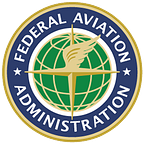Engine Oil 101
By Rebekah Waters, FAA Safety Briefing Magazine
Most people know engine oil is essential — it is the lifeblood of the reciprocating engine — but not everyone knows all the reasons why. So, besides lubrication, what exactly does engine oil do? Engine oil also cools, seals, and cleans. From viscosity to consumption, let’s explore the basics of engine oil.
The lubrication provided by engine oil is crucial for reducing friction between moving parts in the engine. This prevents wear and tear on the engine components. As it absorbs and dissipates the heat generated by the operation of the engine, oil contributes to the overall cooling of the engine. Oil also helps seal gaps between various components such as piston rings. This prevents leakage of combustion gases and helps maintain optimal pressure. Finally, engine oil helps keep the engine clean and functioning properly. It does this by carrying away contaminants, debris, and by-products of combustion.
There are different types of aircraft engine oil, so how do you know which type is best for your aircraft? This will depend on a few things. In addition to following the manufacturer’s recommendations, Jeff Simon, author of the Aircraft Owners and Pilots Association (AOPA) article “All About Oils,” says you should consider your operating environment, outside temperature, engine/cylinder type, and how often the aircraft is flown. From mineral-based to synthetic or semi-synthetic, each type of engine oil has specific properties suited for different types of engines and operating conditions.
Always store your oil in a cool, dry place away from direct sunlight and extreme temperatures.
Viscosity, the thickness of oil and its resistance to flow, is another factor to consider. Too low is a problem, but so is too high. Oil that is too thin won’t provide enough lubrication. This increases wear and tear. Too much friction will damage essential engine parts. But if oil is too thick, there is too much fluid friction. This increases the power required to run the engine and lowers fuel economy. It can also lead to parts overheating. This can shorten the life of the lubricating effects by accelerating oxidation. Remember that cold weather is a consideration too. In colder climates, aircraft engine oil needs to be able to maintain proper viscosity at lower temperatures. Some oils are formulated specifically for cold weather to ensure adequate lubrication during start-up. So, when it comes to choosing what oil to use, use the Goldilocks method, and look for an oil that’s just right!
Once you’ve selected the right oil for your aircraft, there are a few more things you should know. Proper storage is essential. Always store your oil in a cool, dry place away from direct sunlight and extreme temperatures. There are also environmental impacts to consider. Spillage or mishandling of engine oil can have severe environmental consequences. Keep an oil-absorbent pad on hand and be sure to follow any environmental regulations. It is also important to follow a strict maintenance schedule including regular oil changes and inspections, which is vital for the longevity and safety of your aircraft’s engine.
Since oil plays such a vital role in the health and safety of your aircraft’s engine, oil analysis can be a valuable tool. This is a process that involves sending oil samples to a laboratory to check for contaminants, metal wear, and other indicators that can reveal potential engine problems. When collecting oil for analysis, take the sample midway through draining. To get an accurate picture of your engine’s health, it’s important to establish a trend. This means sampling 5 to 10 drains from your aircraft engine.
With anything related to aircraft engine oil, it is always best to consult with certificated mechanics, follow the manufacturer’s guidelines, and adhere to aviation regulations. Proper care and maintenance of engine oil systems contribute significantly to the overall reliability and safety of your aircraft engine.
Learn More
Rebekah Waters is an FAA Safety Briefing associate editor. She is a technical writer-editor in the FAA’s Flight Standards Service.
